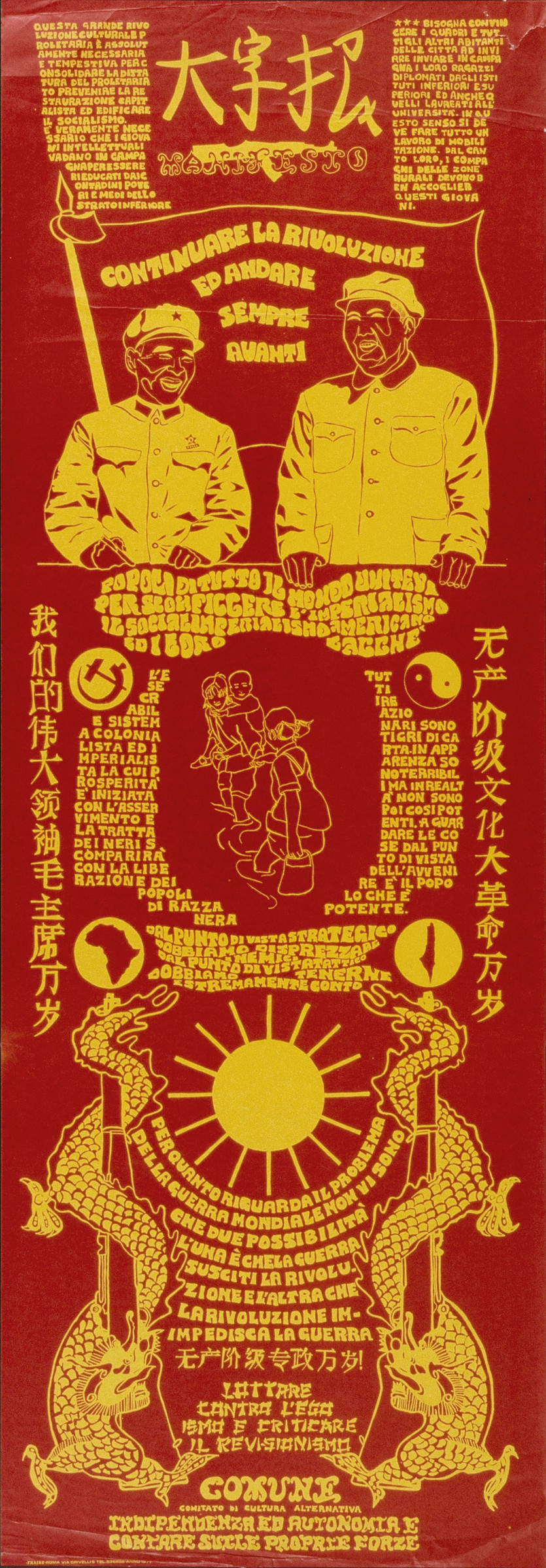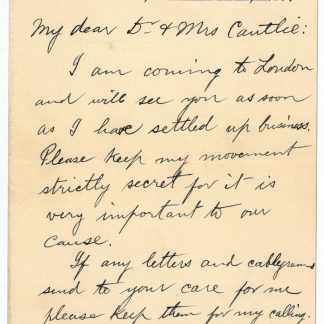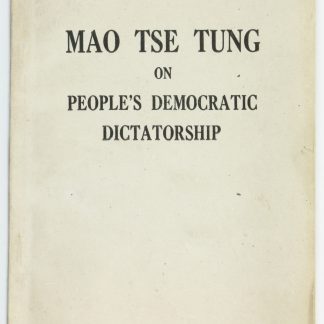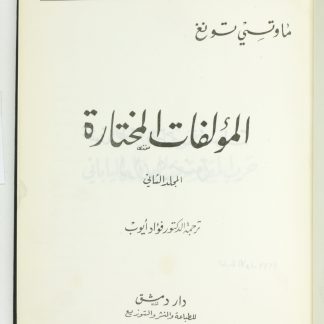Mao for Palestine
Manifesto. Continuare la rivoluzione e andare sempre avanti.
Large rolled poster, 1400 x 485 mm. Clean screenprint in yellow ink on red coated paper, thin wooden stretchers to top and bottom.
$9,242.00
Rare poster in Italian and Chinese calling for the defeat of imperialism and American social-imperialism, featuring images of Mao and Zhou Enlai. A brash and brilliant piece of graphic design; a typical example of Carboni's visual style and her support for the Palestinian liberation movement. Besides the crowded pastiche of Chinese Republic iconography, exemplified by the two dragons entwined around upward-pointing rifles and the children happily wading upstream at centre, two symbols appear slightly out of place: namely the small maps of Africa and Palestine. The poster's iconography and Maoist phrases convey a distinctly anti-Zionist message, with Carboni drawing comparison between Mao's demands for the liberation of black peoples and the Palestinian struggle; both nations are subjugated by the yoke of American imperialism. Carboni produced a number of other pro-Palestine posters in the early 1970s, including two equally aggressive posters for the Comune. Carboni was evidently familiar with Mao's writings and the oft-repeated slogans of the CPC: the three big characters at the top declare this a "dazibao" poster, with the word "manifesto" superimposed on an AK-47. The other three dazibao-style slogans roughly translate as "long live Chairman Mao", "long live the people's/peasant's republic of China", and "the dictatorship of the proletariat". The Italian text consists of direct quotations from Mao: the intellectual youth must go from the city into the countryside; the young, the graduates of middle schools, high schools and universities must mobilize themselves, and the peasants will welcome them; all reactionaries are paper tigers, and appear more terrible than they really are; the black peoples must be liberated; strategically we must despise the enemy, but tactically we must take him seriously; fight egotism and criticise revisionism, etc. We have been able to locate only one other copy, in the Zurich Museum of Design.
A few minor creases to margins, some repairs to corners and margins of verso with white tape, some very minor chipping at centre, else very good.





